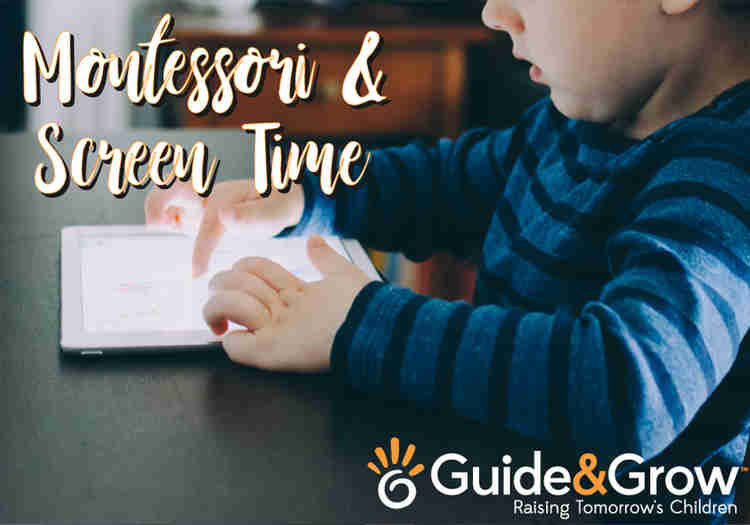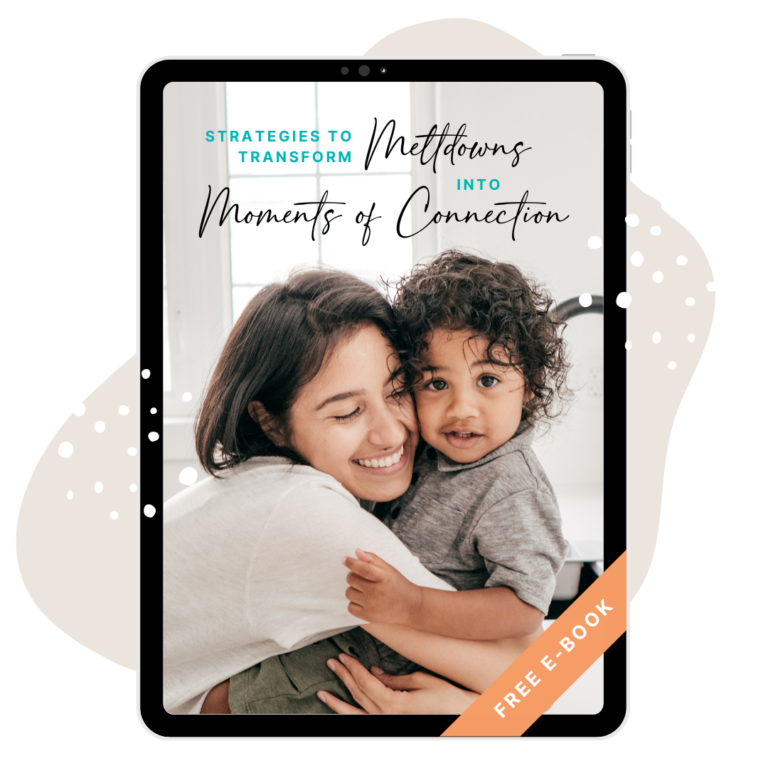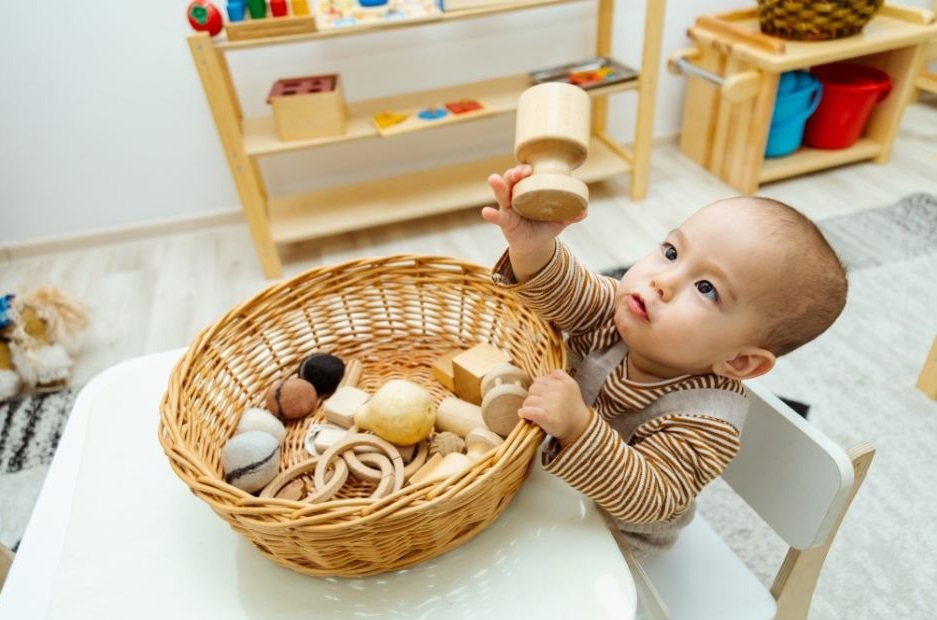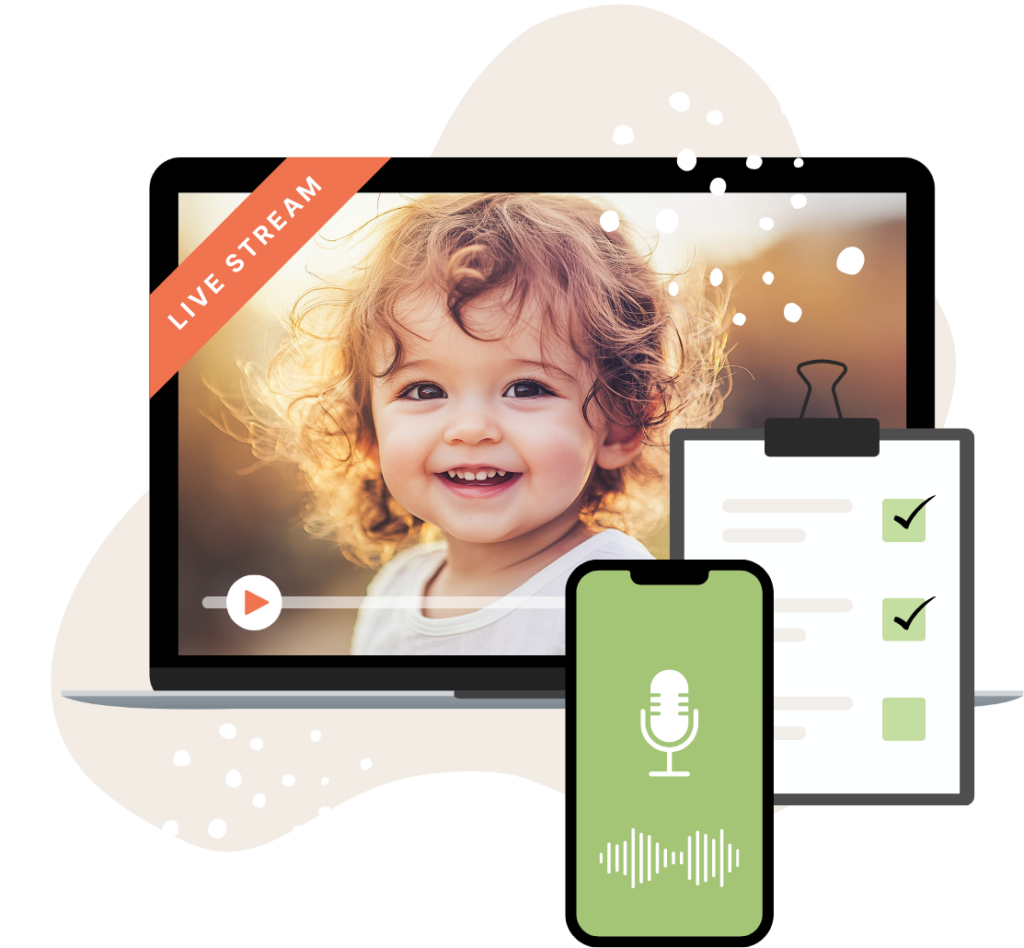Many parents ask about Montessori aligned screen time recommendations and I want to point out that we are a Montessori at home community so we will always advise best practice. Maria Montessori was a strong advocate for young children moving. Through movement they learn not only about their natural environment but also about their own bodies capacity. It was via her observations of children that she noted:
“When there is motor and physical activity, you can see a more important kind of education, a kind of education that takes the force of life into account… If we do not take [this] into account, we miss the best part of education” – Maria Montessori London Lectures
So even though Montessori does not advocate for screen time how do we apply it today living in a digital world where screens are all around us and children are becoming more immersed?
Discover practical, easy-to-implement strategies to gently navigate your child’s emotional outbursts, while maintaining your own sense of calm.
The main points to consider for the under 3 years when it comes to being active:
Active play is recommended for –
- Infants – birth to 1 year – being physically active several times a day in a variety of ways,
- Toddlers – 1 to 2 years – at least 180 minutes spent throughout the day, in a variety of physical activities, including energetic play, and,
- Preschoolers – 3 years + – at least 180 minutes spent throughout the day, in a variety of physical activities, of which at least 60 minutes is energetic play
Sedentary time – not being restrained (car seat, pram or high chair) for more than 1 hour at a time across all ages and when sedentary, children should be engaging in activities such as reading, puzzles, games etc
- “What would our lives be like if our days and nights were as immersed in nature as they are in technology?” Richard Louv
Some key points and recommendations to consider for screen time for children under 3 years:
The WHO recommends ZERO screen time for under 2’s
- 1 hour of screen time or LESS between 2-3 years
- Active screen time (including video calls, video chat, singing songs, back and forth dialogue) is not counted as passive screen time (staring at a TV or screen, watching) so try and have more active screen time in your family
- If you do choose TV or iPad try finding nature/documentaries that have realistic images, slow moving images and are educational (David Attenborough is a fave) or of young children doing activities (http://tv.nrk.no/serie/kan-selv/sesong/1/episode/1) or real people entertaining (singing, dancing, reading)
- Comment or interact as much as possible whilst your child is watching – they learn more this way
- Activate a blue light filter on your TV or black & white mode or reduce brightness – makes it less attractive
- Stop screen time at least 90 mins before bed if not at least 30-60 mins beforehand so children can wind down, here are some tips on what to do insteadhttps://drkristygoodwin.com/is-your-childs-screen-time-sabotaging-their-sleep/
- Avoid handheld devices so children don’t fall into ‘play list and automatic replay’ – TV is a better option
- Have screen free zones in the house – these are areas in which devices are not used eg. bedroom
- Set limits on screen time use – a kitchen timer can be a great help for young children between 2- 3 yrs
- MODEL – if you would like your children to have good screen time habits you have to set them yourself
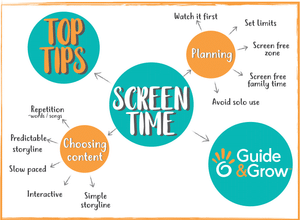
Extra Resources:
- Limited Screen time Families FB Group: https://www.facebook.com/groups/limitedscreentimefamilies/
- Dr. Kristy Goodwin – Blogs & Book: https://drkristygoodwin.com/blog-parents/
- Engaging Cooperation & setting limits on screen time YouTube videos – www.youtube.com/c/GuideGrowTv
- We recommend that you read the following blog by Dr. Kristy Goodwin a colleague of ours and EXPERT in the digital realm you can find it here: https://drkristygoodwin.com/updated-screen-time-guidelines-what-parents-really-need-to-know-2/
For anyone else who is looking for more information on how to raise children in a digital world Dr. Kristy wrote a fantastic book called: “Raising your child in a digital world” which allows you to find a healthy balance of time online without techno tantrums and conflict. There are lots of practical tools to help you, paired with our YouTube video “Montessori & Discipline“, to build the right communication skills to instill them.
Find the book here (no affiliations or promotions).
In conclusion everyone’s family situation is different and even though there can be best practice and Montessori does not advocate for screen time you, the reality is different and you are no less of a parent at all for giving your child screen time. We ALWAYS say you do what works best for your family, we have some great resources here to help with screen time and how to manage in your house whilst on your Montessori journey.
